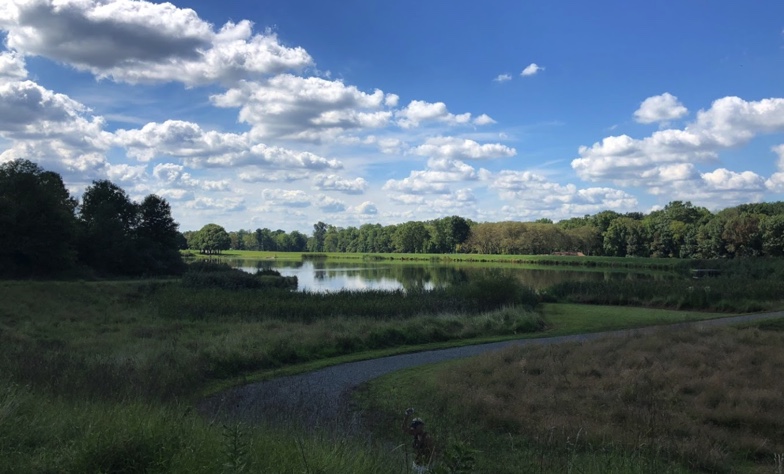The Department of Environmental Protection is advising the public to avoid contact with Rosedale Lake water due to an extensive Harmful Algal Bloom, or HAB, confirmed this week by laboratory analysis.
The DEP’s Division of Water Monitoring and Standards’ confirmed Monday that Rosedale Lake is experiencing cyanobacteria blooms. The rapid spread of the bloom may be the result of heavy rainfall carrying nutrient-laden stormwater into the lake, followed by periods of warm weather. The DEP will monitor cyanobacteria levels until the lake is determined to be safe for recreational contact.
Based on the widespread nature of the HAB, the recreational advisory may be in place for weeks, if not longer. The duration of a Harmful Algal Bloom is unpredictable and may be influenced by availability of nutrients and weather conditions. In many cases in 2018, HAB was observed on water bodies well into the fall season.
Often referred to as blue-green algae, cyanobacteria are not true algae but are capable of excessive growth through photosynthesis. Cyanobacteria blooms are usually a bright green, but can also appear as spilled paint, “pea soup,” or as having a thick coating or “mat” on the surface. These blooms can often be confused for typical algae blooms.
Exposure can cause a range of health effects, including rashes, allergy-like reactions, flu-like symptoms, gastroenteritis, respiratory irritation, skin rashes and eye irritation.
Recreational exposure can occur while fishing, kayaking, and canoeing. The DEP is advising the public to avoid these activities and all contact with water from Rosedale Lake until further notice. People also should not eat fish caught in the lake or allow pets to come in contact with lake water or drink the water.
Cyanobacteria are naturally present in lakes and streams in low numbers. Under suitable environmental conditions – sunlight, high nutrients, warm temperatures and calm water – dense cyanobacterial blooms can form.
- Avoid contact with water in the vicinity of the bloom, especially in areas where the bloom is dense and forms scum;
- Do not drink or consume the water;
- Do not eat fish from the waterbody;
- Keep pets and livestock away from the water;
- Do not allow animals to drink the water, eat dried algae, or groom themselves after cominginto contact with the water;
- People, pets and livestock that come into contact with a bloom should rinse off with freshwater as soon as possible;
- Seek medical attention or a veterinarian if a person or animal is experiencing adverse healtheffects after exposure to a bloom;
- Report a suspected HAB by calling the DEP Hotline at 1-877-WARNDEP (877-927- 6337) send a mobile alert through the WARN NJDEP mobile app (available via iTunes, Google Play or Windows Phone) or report via the DEP’s HAB website atwww.state.nj.us/dep/wms/HABS.html
The DEP’s HAB website, at www.state.nj.us/dep/wms/HABS.html contains information on both freshwater cyanobacterial HABs, and a variety of marine water HABs.
General information about cyanobacterial HABs, what to do if people or pets are exposed, links to the EPA and U.S. Centers for Disease Control’s HABs websites and other resources, as well as a gallery of both HAB and non-HAB photos of lakes and streams, are also provided.
For questions regarding the freshwater harmful algal bloom strategy, call DEP’s Bureau of Freshwater and Biological Monitoring at (609) 292-0427 or email [email protected]




